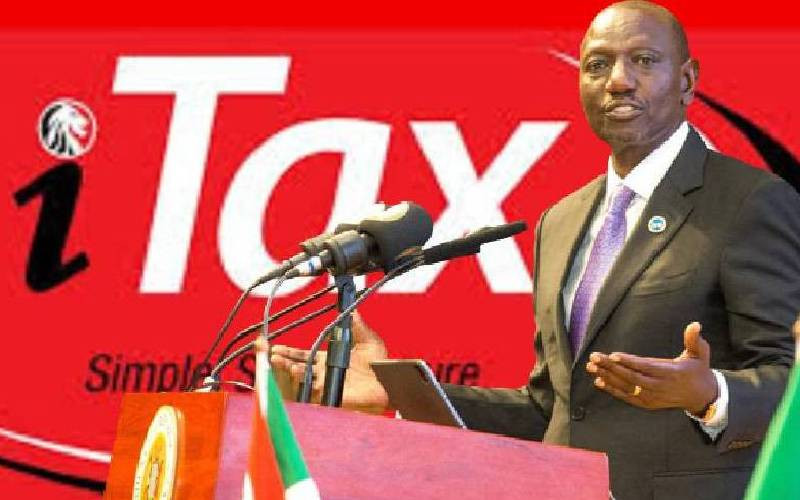
The Finance Act 2023 is a product of the fallacy that all salaried people are rich enough to have their pay raided at will.
This is the first time in a long time that budget drafters have seen fit to introduce a new tax beyond the PAYE directly charged to employers and employees.
It is worse and comical that the president and his luminaries think unemployed hustlers must take pride in their lack of employment because they have no salaries to be taxed.
Various agencies place the number of employed Kenyans earning over Sh50,000 at between 20 and 25 per cent. The number of Kenyans earning above Sh100,000 has been placed at 80,000. This number can fit into Uhuru Park.
However, it is more important to note few employed Kenyans earn a salary commensurate with the state of the economy and the inflation rate. Ideally, every salaried Kenyan must have an annual salary increment, not for gain but to compensate for inflation. However, that rarely happens.
The obvious implication is the purchasing power of a salaried Kenyan has been going down. A Sh1000 note from a few years ago is equivalent to Sh500.
Just three years ago, Kenyans bought fuel for between Sh90 and Sh100. During Covid-19, it even went below Sh80. This means someone has to budget for double the initial amount. For a small car filled up with 42 litres, that is an extra of around Sh4,000 per fill. If we go by the numbers from just a few months ago, the extra budget may come down to around Sh3,000 per fill. Now, the extra cost was not money just lying about. Something else has to give. Sh3,000 is not mzinga money, as Trade CS Moses Kuria would want us to believe.
The cost of fuel is just one factor. There is cost of electricity, which has gone up by 67 per cent and could go higher when new fuel costs are factored in.
Then we have deductions coming up. Housing tax at 1.5 per cent and NHIF levy at 2.75 per cent. For one earning Sh100,000 that is an extra Sh3,250 in disposable income. Now, all this would not be a big deal if the person earning Sh100,000 this year has been having annual or regular increments and is expecting to earn Sh110,000 next year.
The extra Sh10,000 would easily compensate for the extra levies and expenses. The government conveniently forgets to factor into policy the number of Kenyans assumed to be employed but are actually underemployed.
For example, a graduate teacher earning Sh8,000 as a BOG teacher, cannot claim to be employed, nor can the thousands of graduates the government wants to engage in the ‘mjengo’ sector.
The other fact is, while the government can actually give its workers an increment, it cannot dictate the private sector to do the same.
Stay informed. Subscribe to our newsletter
 The Standard Group Plc is a
multi-media organization with investments in media platforms spanning newspaper
print operations, television, radio broadcasting, digital and online services. The
Standard Group is recognized as a leading multi-media house in Kenya with a key
influence in matters of national and international interest.
The Standard Group Plc is a
multi-media organization with investments in media platforms spanning newspaper
print operations, television, radio broadcasting, digital and online services. The
Standard Group is recognized as a leading multi-media house in Kenya with a key
influence in matters of national and international interest.
 The Standard Group Plc is a
multi-media organization with investments in media platforms spanning newspaper
print operations, television, radio broadcasting, digital and online services. The
Standard Group is recognized as a leading multi-media house in Kenya with a key
influence in matters of national and international interest.
The Standard Group Plc is a
multi-media organization with investments in media platforms spanning newspaper
print operations, television, radio broadcasting, digital and online services. The
Standard Group is recognized as a leading multi-media house in Kenya with a key
influence in matters of national and international interest.










